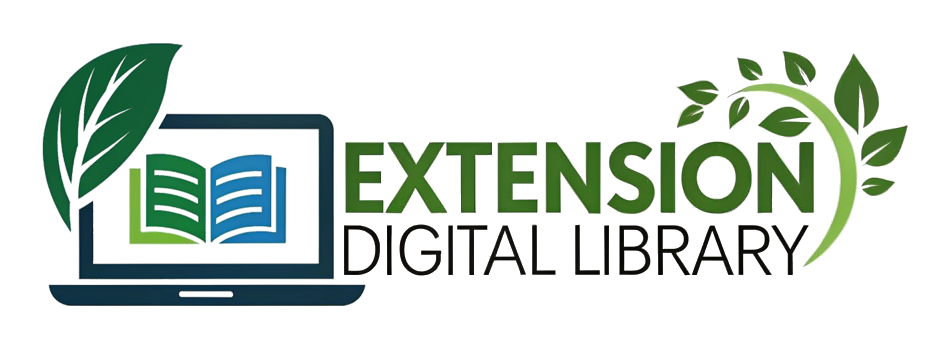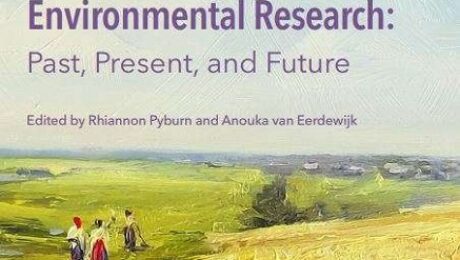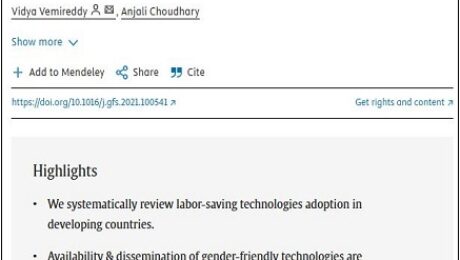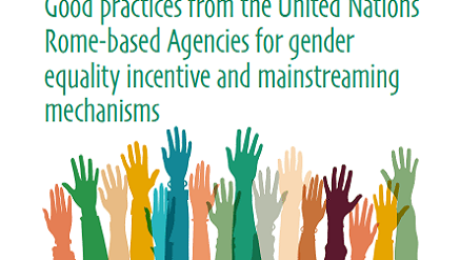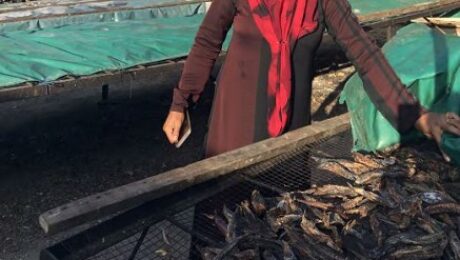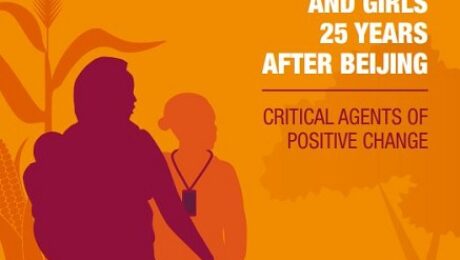Women’s leadership and gender equality in climate action and disaster risk reduction in Africa
Despite the key roles that rural women play in food systems, in agrobiodiversity conservation, natural resource management, food production, preparation and marketing, rural women are particularly affected by the impacts of climate change due to limited access and control over resources fundamental to adaptation and limited participation in decision-making processes. Similarly, they lack equal access to productive resources needed for agricultural livelihoods, and are often the last to eat when food is scarce. Decision-making and leadership in climate action and governance are also male dominated and the decisions less likely to respond to women’s needs and wants.
It is therefore urgent to ensure that policy and programmatic response for building back better and strengthening the resilience of food systems and communities takes into account the interests and constraints of women and men from diverse social, cultural, ethnic and religious backgrounds. For this to happen, it is important to strengthen women’s leadership and participation at all levels of climate action and governance.
- Published in GENDER
Advancing Gender Equality through Agricultural and Environmental Research: Past, Present, and Future
Current data suggests that the global community is far from achieving the 2030 agenda of ending hunger, food insecurity, and malnutrition. By the end of 2019, 650 million people suffered from chronic hunger and 135 million experienced acute food-insecurity. Not all regions are equal: the Global Hunger Index (GHI) 2020 found that some are experiencing less severe incidence of hunger on the GHI scale, compared to others. The most serious levels of hunger are in Sub-Saharan Africa and South Asia. This brief focuses on South Asia. It analyses the factors underlying the so-called ‘South Asian Enigma’—the paradoxical co-existence of hunger and malnutrition amidst economic prosperity—and dissects the disproportionate impacts on women.
- Published in GENDER
Gender Gap in Agriculture and the ‘South Asian Enigma
Current data suggests that the global community is far from achieving the 2030 agenda of ending hunger, food insecurity, and malnutrition. By the end of 2019, 650 million people suffered from chronic hunger and 135 million experienced acute food-insecurity. Not all regions are equal: the Global Hunger Index (GHI) 2020 found that some are experiencing less severe incidence of hunger on the GHI scale, compared to others. The most serious levels of hunger are in Sub-Saharan Africa and South Asia. This brief focuses on South Asia. It analyses the factors underlying the so-called ‘South Asian Enigma’—the paradoxical co-existence of hunger and malnutrition amidst economic prosperity—and dissects the disproportionate impacts on women.
- Published in GENDER
Enhancing the Livelihoods of ‘Hidden Women’ in Global Smallholder Value Chains
Women smallholder farmers often face complex social and economic barriers that prevent them from exercising agency and securing decent livelihoods. This Discussion Summary Paper draws from an online discussion co-hosted by Business Fights Poverty, Unilever and Oxfam, on how companies and their partners can recognize, value, and enhance the contributions of the hidden women on whom our global food supply systems depend. Read it to learn about the key levers of change, case studies and lessons learned, and how to collaborate for transformational change.
- Published in GENDER
Beyond COVID-19: A feminist plan for sustainability and social justice
As the world learns to live with COVID-19, to emerge from the current crisis, and to “build back better”, UN Women’s new “Feminist plan” provides a visionary but practical roadmap for putting gender equality, social justice, and sustainability at the centre of the recovery and transformation.
COVID-19 has revealed and worsened inequalities and is a reminder of just how unsustainable and fragile the world’s economies and democracies are. The crisis also provides a warning about what is rapidly coming down the track on climate change and environmental degradation. This has created both a need and an opening to rethink economic and social policies and re-evaluate what needs to be prioritized.
The “Feminist plan” maps the ambitious and transformative policies—on livelihoods, care, and the environment—that are needed to build a more equal and sustainable future. To get there, it calls for context-specific policy pathways, tailored political strategies, and financing. The plan identifies key levers that can create change and the actors at global, national, and local levels that need to take action to move towards this vision.
- Published in GENDER
A systematic review of labor-saving technologies: Implications for women in agriculture
In this study, we systematically review the literature on adoption factors and impacts of labor-saving technologies (LSTs) by smallholder and women farmers in developing countries. 85 articles are included in the review after meeting strict selection criteria through a search across several electronic platforms. We highlight several research gaps that need future research focus. Future research should include gendered differences in factors such as – comparing extension models, social networks, and farmers’ underlying technological perceptions. We show the need for designing and providing access to gender-friendly LSTs suited to the context. While there are clear impacts of LST adoption on labor and productivity, few studies examine negative consequences such as labor-displacement. Further examination of these trade-offs and differential impacts on welfare dimensions across gender is needed. Our results indicate implications for future research and policy regarding incorporating gender differences in designing, promotion, and adoption of LSTs to reduce women’s work burdens and to enhance welfare outcomes.
- Published in GENDER
Good practices from the United Nations Rome-based Agencies for gender equality incentive and mainstreaming mechanisms
This summary report is the outcome of a virtual knowledge exchange on good practices in corporate gender equality mechanisms and gender mainstreaming programmes, organized in July 2020 by the United Nations Rome-based Agencies – FAO, IFAD and WFP – in the framework of the Joint Programme on Gender Transformative Approaches for Food Security and Nutrition (JP GTA) with the FAO Women’s Committee.
The reports gives a special focus on the Gender Awards created by IFAD in 2013 to showcase, celebrate, reward and increase the adoption of successful ways of promoting gender equality and women’s empowerment in IFAD projects.
- Published in GENDER
Country Gender Assessment of Agriculture and the Rural Sector in Maldives
This Maldives Country Gender Assessment of Agriculture and the Rural Sector (CGA-ARS, or CGA) provides evidence of gender inequalities in the agriculture and rural sectors of Maldives, highlighting rural women’s needs, challenges and priorities. It also analyses country-level achievements, and shortfalls in closing existing gaps towards the pursuit of gender equality. The report provides information to the Government of Maldives on the current situation and guidance to decision makers on how rural development and investment initiatives may affect gender roles and relations, positively and/or negatively. It also provides data on facilitating women’s empowerment and their access to resources and opportunities.
Rural women and girls 25 years after Beijing – Critical agents of positive change
Globally, rural and indigenous women fare worse than rural men and urban women and men on almost every indicator for which data are available. Although they share common challenges such as rural location and gender-based discrimination, rural women and girls are not a homogeneous group. The opportunities and constraints they face differ across their lifetimes, contexts and circumstances, and are influenced by location, socio-economic status and social identities associated with attributes such as indigenous origin and ethnicity, age, disability, migrant or refugee status.
The twenty-fifth anniversary of the Beijing Platform for Action, also known as “Beijing + 25”, provides an excellent opportunity for governments, civil society, the United Nations system and all development actors to take stock of progress made towards gender equality and the empowerment of women and girls.
This document highlights key facts as well as some good practices from the members of the IANWGE network in the thematic areas of education; food security and nutrition; health; access to and control over land and other productive resources; leadership, decision-making and public life; social protection and services; care and domestic work; gender-based violence; and resilience in the context of climate change and fragility.
- Published in GENDER
FAO Policy on Gender Equality 2020–2030
Gender equality is essential to achieve FAO’s mandate of a world free from hunger, malnutrition, and poverty. The Organization recognizes that persisting inequalities between women and men are a major obstacle to agriculture and rural development and that eliminating these disparities is essential to building sustainable and inclusive food systems and resilient and peaceful societies.
In alignment with the priorities set by the international agenda, the FAO gender equality policy, first endorsed in 2012, provides the Organization with a corporate framework to orient its technical and normative work towards clear gender equality objectives relevant to its mandate. The Policy recognizes that a gender-responsive organizational environment is necessary to achieve progress towards these objectives. It, therefore, includes a set of minimum standards for gender mainstreaming to ensure that gender dimensions are adequately addressed in all organizational functions, from results-based management to staff learning and evidence generation. Recognizing that all staff has a role to play in advancing gender equality and women’s empowerment, the Policy establishes a shared accountability framework that clearly outlines responsibilities for its implementation across the Organization.
